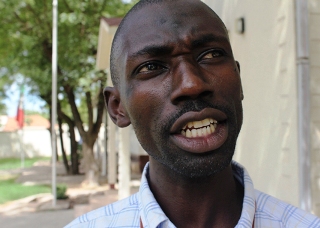Observe ceasefire deal, activists tell South Sudan parties
October 18, 2018 (JUBA) – Parties that signed the Revitalized Agreement on Resolution of the Conflict in South Sudan (R-ARCSS) should “immediately” end violation of the ceasefire if they are to gain trust and confidence from friends of South Sudan for possible support, a South Sudanese civil society entity said.

On September 12, South Sudanese rebel leader, Riek Machar signed in Khartoum a peace agreement with the government to end a civil war, which killed tens of thousands of people and displaced millions.
However, according to CEPO, the first one month after the agreement was signed demonstrated reasonable progress especially on the political aspects of the pre-transitional period for the implementation of the agreement.
“This first month of Revitalized Agreement on the Resolution of Conflict in South Sudan is better than the first month for the implementation of the Agreement on Resolution of Conflict in South Sudan in 2015,” reads a summary of CEPO’s report.
Some notable progress, the report says, were made in the first one month after the peace accord was signed, citing the ratification of the R-ARCSS by all the parties that were signatory to the accord, the face-to-face meeting between the government army and rebel field commanders in Pagak town of Maiwut on 6 October, 2018 and the release by the government of prisoners of war, among others.
On a rather worrying note, however, the civil society group said it witnessed numerous incidences of ceasefire violations by both government and the armed opposition forces in Yei, Wau and Bentiu, describing these events as “discouraging” and “disturbing”.
“They [ceasefire violations] increase in making the public and friends of South Sudan to have less hope for genuine implementation of the R-ARCSS,” CEPO noted in its report released Thursday.
South Sudan became an independent country on 9 July 2011 after decades of war, lengthy negotiations and a referendum to secede from neighbouring Sudan. Two and a half years later, armed conflict broke out between forces loyal to President Salva Kiir and those allied to the country’s former vice president, Riek Machar.
However, in August 2015, the two main parties in the conflict agreed a peace deal and later formed a transitional unity government with President Kiir at the helm and Machar as one of his two deputies.
Renewed again fighting broke out in July 2016 with heavy clashes in the capital, Juba and other parts of the nation forcing Machar to flee.
(ST)
